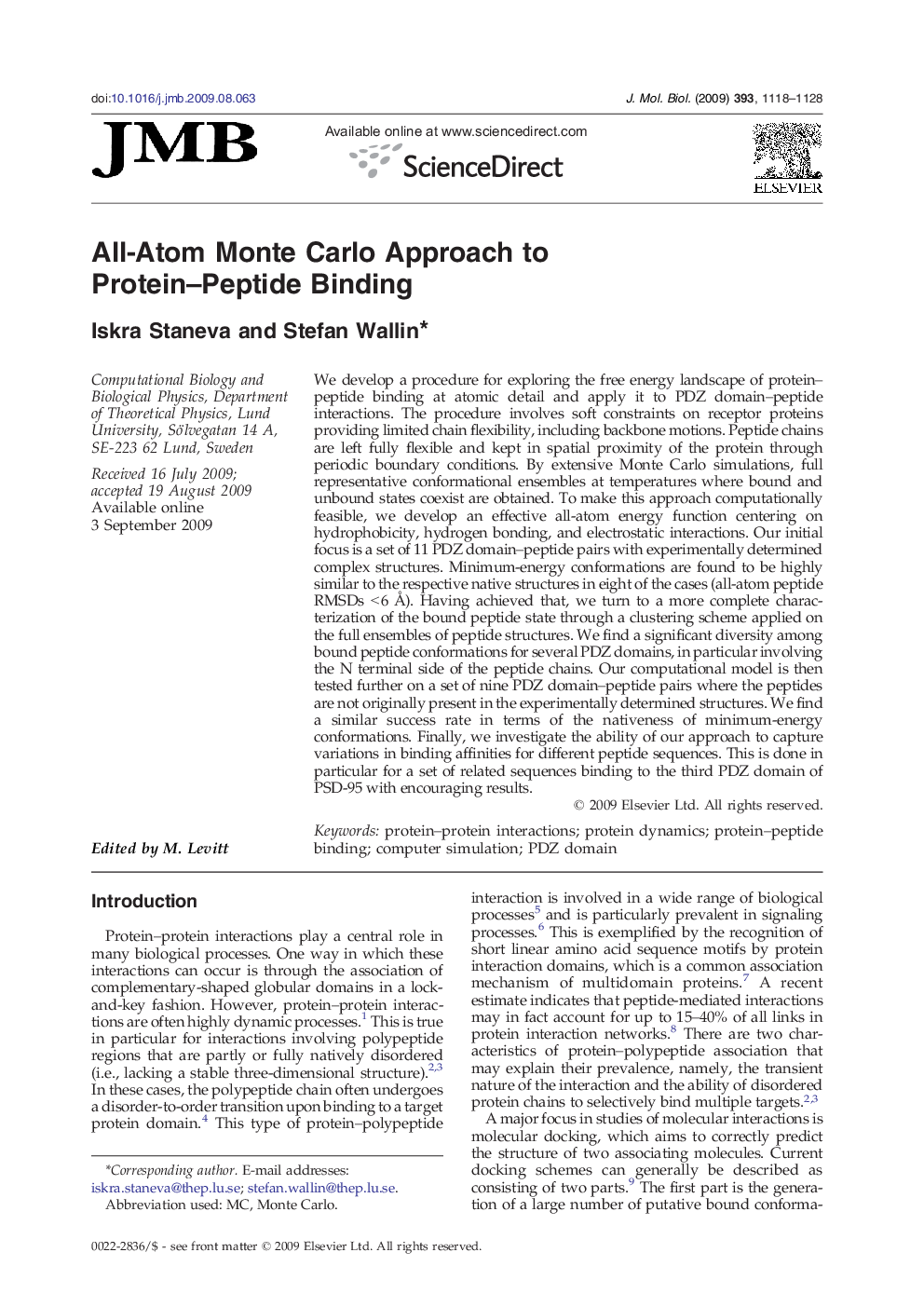| کد مقاله | کد نشریه | سال انتشار | مقاله انگلیسی | نسخه تمام متن |
|---|---|---|---|---|
| 2186325 | 1096047 | 2009 | 11 صفحه PDF | دانلود رایگان |

We develop a procedure for exploring the free energy landscape of protein–peptide binding at atomic detail and apply it to PDZ domain–peptide interactions. The procedure involves soft constraints on receptor proteins providing limited chain flexibility, including backbone motions. Peptide chains are left fully flexible and kept in spatial proximity of the protein through periodic boundary conditions. By extensive Monte Carlo simulations, full representative conformational ensembles at temperatures where bound and unbound states coexist are obtained. To make this approach computationally feasible, we develop an effective all-atom energy function centering on hydrophobicity, hydrogen bonding, and electrostatic interactions. Our initial focus is a set of 11 PDZ domain–peptide pairs with experimentally determined complex structures. Minimum-energy conformations are found to be highly similar to the respective native structures in eight of the cases (all-atom peptide RMSDs < 6 Å). Having achieved that, we turn to a more complete characterization of the bound peptide state through a clustering scheme applied on the full ensembles of peptide structures. We find a significant diversity among bound peptide conformations for several PDZ domains, in particular involving the N terminal side of the peptide chains. Our computational model is then tested further on a set of nine PDZ domain–peptide pairs where the peptides are not originally present in the experimentally determined structures. We find a similar success rate in terms of the nativeness of minimum-energy conformations. Finally, we investigate the ability of our approach to capture variations in binding affinities for different peptide sequences. This is done in particular for a set of related sequences binding to the third PDZ domain of PSD-95 with encouraging results.
Journal: Journal of Molecular Biology - Volume 393, Issue 5, 13 November 2009, Pages 1118–1128